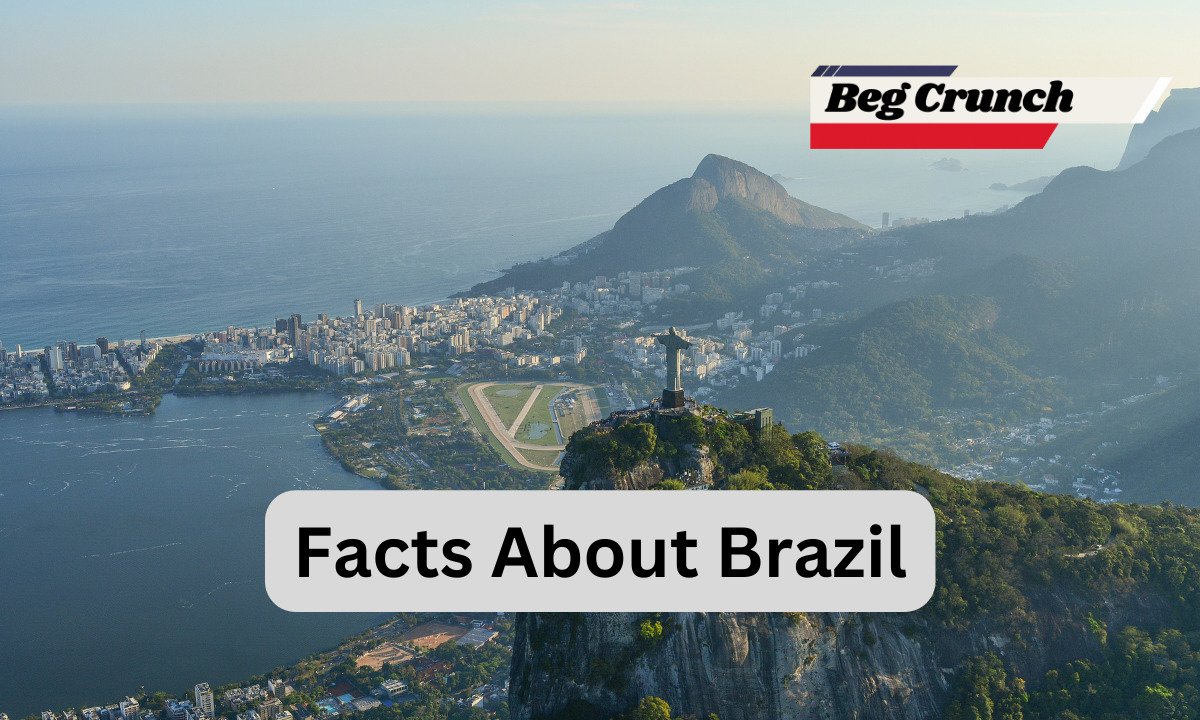Discovering Fascinating Facts About Brazil
Brazil, a land of vibrant culture, breathtaking landscapes, and diverse ecosystems, holds a special place as the largest country in South America. From the rhythms of samba to the lush Amazon rainforest, Brazil’s beauty and complexity captivate travelers and enthusiasts worldwide. In this article, we’ll delve into a collection of captivating facts about Brazil that illuminate its history, geography, and unique contributions to the world.
A Tapestry of Geography and Nature
Amazon Rainforest: Nature’s Lungs and Biodiversity Haven
Brazil is bestowed with a treasure beyond measure—the Amazon rainforest, often celebrated as the “Lungs of the Earth.” This immense expanse of verdant beauty spans across the country, entwining it with the intricate threads of life. The Amazon rainforest isn’t just a geographical marvel; it’s a living testament to nature’s ingenuity and resilience.
Beyond its lush canopy lies a tapestry of biodiversity that defies comprehension. This rainforest is an orchestration of life, hosting an astonishing array of plant and animal species, many of which are yet to be discovered.
Its diverse ecosystems provide a sanctuary for countless creatures, from the elusive jaguars to the vibrant macaws that paint the skies with their colors. The Amazon is a laboratory of evolution, a realm where species have evolved unique adaptations to thrive in this jungle symphony.
Yet, the Amazon’s significance reaches far beyond its borders. Its expansive green embrace plays a pivotal role in regulating the planet’s climate, serving as a natural carbon sink. The oxygen produced by its luxuriant vegetation sustains life across the globe, illustrating the interconnectedness of our planet’s ecosystems.
Iguaçu Falls: Nature’s Grand Spectacle of Water and Majesty
Tucked away on the border between Brazil and Argentina lies a natural spectacle that defies the boundaries of imagination—Iguaçu Falls. This marvel of nature beckons with its roaring cascades and ethereal mists, enveloping visitors in a sensory symphony of sound and sight.
Stretching nearly 2 miles (3 kilometers), the falls are a testament to the ceaseless dance of water and earth. The hypnotic rhythm of the cascades, where water plunges with unyielding force, is complemented by the delicate embrace of mist that shrouds the surroundings. Iguaçu Falls stands not merely as a destination; it’s an experience that leaves an indelible mark on the soul.
Pantanal Wetlands: Nature’s Canvas of Fluctuating Life
In the heart of Brazil lies the Pantanal, a dynamic masterpiece where the ebb and flow of water orchestrate the symphony of life. This expanse of wetlands, the largest of its kind on Earth, is a habitat of unparalleled complexity. The Pantanal is a living gallery that shifts with the seasons, painting the landscape with shades of lush greenery and mirrored waters.
Within this watery haven, jaguars roam as majestic sentinels, captivating the imagination of those fortunate enough to catch a glimpse. Capybaras wade through the waters, and vibrant bird species fill the air with their melodies. The seasonal flooding, far from being a constraint, is the very heartbeat of the Pantanal. It nurtures a symphony of life, where species have evolved to thrive in harmony with the wet and dry rhythms of this enchanting wetland.
Cultural Riches and Celebrations
CarnivalBrazil is famous for its vibrant Carnival celebrations, known for its energetic parades, elaborate costumes, and samba music. The most iconic Carnival takes place in Rio de Janeiro, attracting millions of visitors each year.
- Soccer Passion
Soccer, known as “futebol” in Portuguese, is more than just a sport in Brazil—it’s a national obsession. The country has produced legendary players like Pelé and has won the FIFA World Cup a record five times.
- Cultural Fusion
Brazil is a melting pot of cultures influenced by Indigenous, European, African, and Asian traditions. This fusion is evident in the country’s music, dance, cuisine, and art.
Natural Wonders and Unique Wildlife
- Christ the Redeemer
The iconic Christ the Redeemer statue in Rio de Janeiro is one of the New Seven Wonders of the World. This towering monument stands atop Corcovado Mountain, offering panoramic views of the city and the coastline.
- Diverse Flora and Fauna
Brazil’s rich biodiversity is showcased through its varied plant and animal life. The country is home to species like the golden lion tamarin, the toucan, and the vibrant scarlet macaw.
- Cultural Capitals
Brazil boasts dynamic cities with their distinct vibes. Rio de Janeiro is famous for its beaches and festive atmosphere, while São Paulo is a bustling metropolis known for its diverse cultural scene.
Historical Significance and Modern Development
- Portuguese Influence
Brazil was colonized by Portugal in the early 16th century. As a result, Portuguese is the official language, and the country has a strong Portuguese cultural heritage.
- Economic Powerhouse
Brazil has the largest economy in South America and is a major player in the global agricultural and commodities markets. The country’s diverse resources contribute to its economic strength.
- Environmental Challenges
Despite its natural beauty, Brazil faces environmental challenges, including deforestation in the Amazon rainforest and concerns about conservation and sustainability.
FAQs
Q1. What is Brazil’s official language?
A1. Brazil’s official language is Portuguese. It is the sole nation in South America where Portuguese is widely spoken.
Q2. How big is the Amazon rainforest in Brazil?
A2. The Brazilian portion of the Amazon rainforest covers approximately 60% of the entire rainforest’s area. It is the world’s biggest tropical jungle.
Q3. What is the significance of the Carnival celebrations?
A3. Carnival is a festive season that marks the period before Lent in the Christian calendar. It’s a time of celebration, music, dance, and vibrant parades, and it holds cultural and social significance in Brazil.
Q4. How diverse is Brazil’s cuisine?
A4. Brazilian cuisine is incredibly diverse, influenced by the country’s Indigenous, African, European, and Asian heritage. Popular dishes include feijoada (a black bean stew), pão de queijo (cheese bread), and acarajé (deep-fried bean cakes).
Q5. What is the cultural importance of soccer in Brazil?
A5. Soccer is deeply ingrained in Brazilian culture and society. The sport is a source of pride for the country, and Brazil’s success on the international stage has contributed to the country’s global identity.
Conclusion
Brazil’s vastness and diversity extend far beyond its geographical borders. From the awe-inspiring wonders of nature to the rhythms of its music and the warmth of its people, Brazil leaves an indelible mark on those who experience its beauty. As a country that encompasses the Amazon rainforest, vibrant cities, and a rich cultural tapestry, Brazil stands as a testament to the complexity and richness of our planet’s landscapes and human connections.







